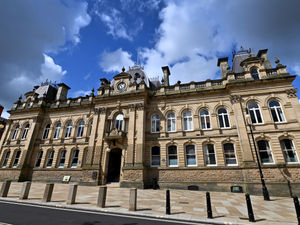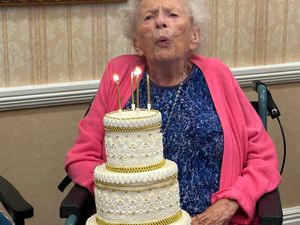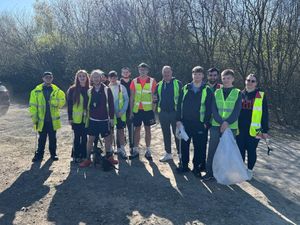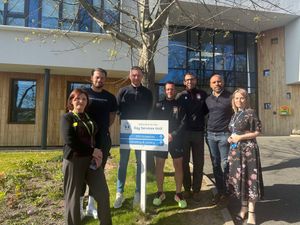Mitsubishi's prisoners of war apology is not enough, says Burma veteran George
A war veteran who helped free prisoners of war from Japanese labour camps in the aftermath of the Second World War says no apology can ever be enough for the horrors he saw.
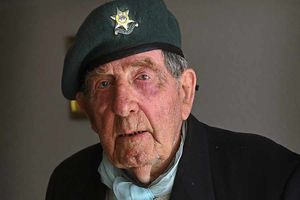
George Hill, 89, of Codsall, was responding to Mitsubishi's apology to a US veteran for its behaviour during the conflict in the Far East.
Company bosses gave a face-to-face apology to James Murphy, 94, and to relatives of his comrades who suffered when they worked as labourers in the corporation's mines and factories in the 1940s.
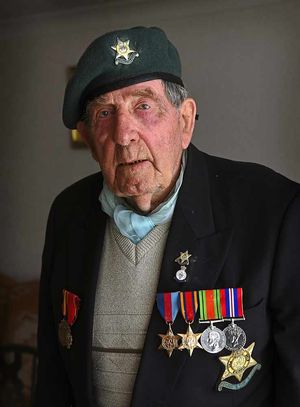
British and Commonwealth soldiers who fell into the hands of the Japanese were used as slave labour and were starved.
During the war, Mitsubishi ran mines to supply raw materials for military planes. Now, families of British PoWs want an apology for their relatives who were among thousands forced to make war planes for the enemy.
Mr Hill, of Wolverhampton Burma Star Association, served with the 1st Battalion of the Northamptonshire Regiment in the Far East.
"We left Burma via India and as we were arriving in Singapore the Japanese were surrendering in 1945," he said. "They wouldn't accept that the war was over. I saw the PoWs who came from all over the place including Australia, Nigeria and other Commonwealth countries. They were starved and looked like walking skeletons.
"We brought dozens of them out of the Chanji jail and as they came out we transferred 22 war criminals into the same cells they had been kept in. The PoWs were in a bad state. Some survived and after the war I got to know one of two of them that lived in this area. They were given treatment before they transported home in 1946 when they were in better health.
"I would never believe it if the Japanese came to say sorry for what they did to those people. I wouldn't accept an apology - it wouldn't be enough."
Fred Bunce of Wolverhampton's United Ex-Service Council added: "Perhaps the company should go one step further and apologise to the British personnel who were there too. Most of the time we only hear of camp prisoners, not about those who toiled in the factories."
The Japanese government has previously said sorry for its treatment of prisoners, but Mitsubishi's gesture signals the first time that an industrial giant has admitted its guilt. An executive made the apology at the Simon Wiesenthal Centre, in Los Angeles, to Mr Murphy one of two US survivors.
Of 2,041 PoWs in forced labour camps 672 were British.


